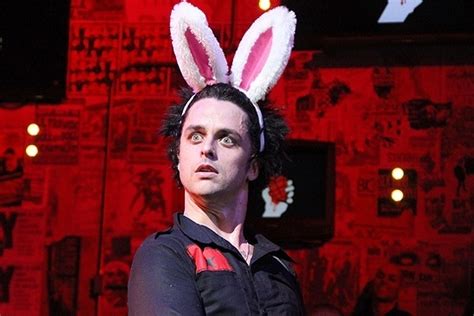A Quote by Ngozi Okonjo-Iweala
One in four sub-Saharan Africans is Nigerian, and it has 140 million dynamic people - chaotic people - but very interesting people.
Related Quotes
Let me explain something to you. Look around here. How many people do you count? Sixty, eighty, eighty people? Greeks, Germans, Italians, French, Americans. Tourists from everywhere. Eating, drinking, talking, laughing. And from Bombay - Indians and Iranians and Afghans and Arabs and Africans. But how many of these people have real power, real destiny, real dynamic for their place, and their time, and the lives of thousand of people? I will tell you - four. Four people in this room with power, and the rest are like the rest of the people everywhere: powerless, sleepers in the dream.
Fox gets two million viewers a night, and MSNBC gets one. It's four million people, five million people, and 130 million people are going to vote. There are an awful lot of voters, and an awful lot of politically engaged, intelligent people who are not hanging on whatever happens on Bill O'Reilly or Rachel Maddow.
In this business, my business, I get to meet all kinds of incredible people, fascinating people, glamorous people and sexy people and highly intellectual people. And you meet them and you go 'interesting, interesting, interesting'. They're interesting, but not very many people stop you in your tracks.
Missionaries in the developing world waste a lot of time and money (not to mention the goodwill of non-Christians) proselytizing to the needy. . . . While missionaries do many noble things at great risk to themselves, their dogmatism still spreads ignorance and death. By contrast, volunteers for secular organizations . . . do not waste . . . time telling people about the virgin birth of Jesus. Nor do they tell people in sub-Saharan Africa - where nearly four million people die from AIDS every year - that condom use is sinful.
People in low-lying countries like Bangladesh with almost 140 million people who are managing to feed themselves, whose carbon emissions can't really be calculated (they are a rounding error in the UN's attempts to do national comparisons), and yet, most of whose people are at risk from increased flooding due to rising sea levels.
I think that it is very interesting to write about a team because a team is a group of people who work in very close quarters and have very intense relationships so - in my days of playing sports, I was very rarely on a team that did not have it's own peculiar dynamic, and you wind up having very intense feelings for good and for bad about these people with whom you spend many hours a day.
The people and the cultures of what is known as Africa are older than the word 'Africa.' According to most records, old and new, Africans are the oldest people on the face of the earth. The people now called Africans not only influenced the Greeks and the Romans, they influenced the early world before there was a place called Europe.
Right after undergrad, I started doing low-level work on health issues in sub-Saharan Africa, and what struck me was the disconnect between how people in New York would speak about some of the issues people were facing. At the time, 2006-ish, there were a number of big media campaigns to raise awareness about HIV in sub-Saharan Africa.





































